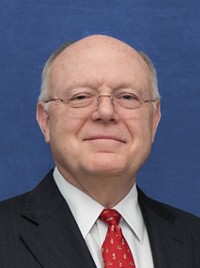Advertisement
Grab your lab coat. Let's get started
Welcome!
Welcome!
Create an account below to get 6 C&EN articles per month, receive newsletters and more - all free.
It seems this is your first time logging in online. Please enter the following information to continue.
As an ACS member you automatically get access to this site. All we need is few more details to create your reading experience.
Not you? Sign in with a different account.
Not you? Sign in with a different account.
ERROR 1
ERROR 1
ERROR 2
ERROR 2
ERROR 2
ERROR 2
ERROR 2
Password and Confirm password must match.
If you have an ACS member number, please enter it here so we can link this account to your membership. (optional)
ERROR 2
ACS values your privacy. By submitting your information, you are gaining access to C&EN and subscribing to our weekly newsletter. We use the information you provide to make your reading experience better, and we will never sell your data to third party members.
Biosimilars
Novartis to spin off its Sandoz generics and biosimilars unit
Plan continues Big Pharma move away from generics and consumer healthcare to focus on patented drugs
by Shi En Kim
August 31, 2022
| A version of this story appeared in
Volume 100, Issue 31

Following the pattern set by other big pharmaceutical companies, Novartis plans to spin off its generics and biosimilars arm, Sandoz, into a separate company.
The separation will allow Novartis to channel its resources towards innovative medicines, CEO Vasant Narasimhan said at an Aug. 25 press briefing about the plan. Narasimhan added that the Swiss firm is also open to sale offers, according to published reports.
Sandoz, which accounted for a fifth of Novartis’s sales last year, is the largest generics and biosimilars company in Europe by sales and the fourth-largest in the US. It posted sales of $12.7 billion during the 12 months ending in March.
Generics are copycat versions of patented small-molecule drugs that are launched when patents expire. Biosimilars are the biologic drug equivalent of generics. They typically require more involved manufacturing processes and hence have a higher barrier of entry.
In deciding to focus on patented drugs, Novartis is following the lead of most other Big Pharma companies. Late last year, Johnson & Johnson announced plans to turn its consumer-health, or over-the-counter drug, business into an independent company. In July, GSK formed a new standalone business, Haleon, from its consumer-health branch. Pfizer is hanging onto its biosimilars unit for now, though it has shed its generics department.
“I’m trying to think of a pharma company that makes biosimilars, and I can’t think of any except for Pfizer…[and] Amgen,” says Kevin Grogan, the Europe managing editor of Citeline’s Scrip news service. “It’s somebody else’s business; there’s money to be made elsewhere.”
Although Sandoz enjoys significant sales, making generics and biosimilars is not as lucrative as selling branded drugs that still have patent protection and command premium pricing. Novartis, for example, expects to reach sales of as much as $5 billion per year from one patented drug, the heart failure treatment Entresto.
When patents on a drug like Entresto expire, new companies jump in to reverse-engineer the medication. The original business has to compete with manufacturers from other parts of the world that may have lower overhead costs, says John LaMattina, a senior partner at PureTech Health and former president of Pfizer’s R&D division.
For Big Pharma companies, “it’s just not an optimal use of your own internal resources to keep that manufacturing plant going,” he adds, “when the manufacturing plant can probably make something totally new with a higher profit margin.”
The price for a drug gone generic tends to drop with the influx of new options. LaMattina points to Pfizer’s cholesterol-lowering treatment atorvastatin, sold under the brand name Lipitor, which hit the market in the 1990s at around $5 per pill. After its patent expired in 2011, competing generics drove the price down to around 31 cents per pill.
As such, “Big Pharma companies have routinely gotten out of the generics business,” LaMattina says. “I’m surprised it took Novartis so long.”
Novartis is also in the midst of a large restructuring. It plans to cut more than 7% of its global workforce as part of an effort to trim costs by $1 billion in the next 2 years. The company expects to complete the Sandoz spinoff by 2023.



Join the conversation
Contact the reporter
Submit a Letter to the Editor for publication
Engage with us on Twitter